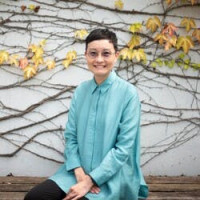Women's Health
Health Technologies
Wearables, Devices & IoT
Gynecological Disorders
Ph.D
Turkey
A portable device against cervical cancer
Cervical cancer is the fourth most common cancer in women globally, and the second in less developed regions. It is caused by certain types of human papillomavirus (HPV), a group of viruses that are sexually transmitted. Two HPV types in particular, 16 and 18, cause 70% of cervical cancers and precancerous cervical lesions. Aside from vaccination, which has been available for young women aged 9 to 14 years since 2006, another effective early detection measure is cervical screening. However, as Dr. Serap Aksu points out, current detection methods for viruses are limited with the requirement of bulk machinery and cost. An AXA-supported researcher at the Koç University, in Istanbul, Dr. Aksu is developing an innovative, easy-to-use, portable device capable of detecting HPV types 16 and 18. The overall objective of the project is to provide a method that will not only enhance the reliability and accuracy of oncogenic virus detection, but also its accessibility and cost-effectiveness.
According to the World Health Organization, in 2018, more than 85% of the 311 000 women who died from cervical cancer lived in low- and middle-income countries. « Lowering the mortality rates caused by cervical cancer throughout the world and improving the quality of life requires smart innovations in nanotechnology and nanomedicine », says Dr. Serap Aksu. Putting words into action, the physics engineer is using her expertise in photonics – the science and technology of light –, to develop a highly innovative early detection method for cervical cancer. More specifically, she aims to use nano-sized metallic structures as biosensors – analytical devices used for the detection of a chemical substance –, for ultrasensitive detection of DNA fragments from carcinogen HPV types. Indeed, these nanostructures have what is called plasmonic resonance, which enables the biological exploration of nanoscale environments using just 'light', thanks to their extraordinary optical properties. In the most simplistic terms, you could say that these metallic nanostructures absorb and scatter incident light in a way that enables the detection of even a small amount of biological molecules in a sample of blood or a human cell. « Plasmonic biosensors act as an antenna and allow the transfer of the biomolecule signal remotely from the sensing volume, thereby minimizing the risk of sample contamination », the researcher explains.
Plasmonic biosensors : an up-and-coming and highly promising screening system
«One of the perks of this technique is that you don’t need labels, like with most biosensors», explains Dr. Aksu. In other words, her technique does not require to tag the molecule of interest with something like an organic dye, for instance. «Labels require extra material, extra steps. This technique is simpler and quicker». Furthermore, using the device does not require any kind of training. «It’s easy to use, portable, and cheap!». The project’s objective will be to demonstrate the feasibility of the device. «We plan on getting samples from hospitals, and even ourselves if we have to ». «This is why I studied engineering in the first place, I wanted to create something that was applicable. I really enjoy the satisfaction of helping people. This technology we are developing wasn’t available before. It’s all very new!», Dr. Serap Aksu says, showing infectious enthusiasm.
And indeed, her project is highly innovative, distinctively because it aims at developing the first ever complete hand-held cancer screening system. The overall outlook for this technology is very promising. Plasmonic biosensors have the unique ability to produce nanoscale, single molecule information using, in many cases, relatively simple and widely available optical instruments. What is more, the proposed hand-held low-cost ultrasensitive detection system can also operate as test kits for a wide range of other viruses, like the Human Immunodeficiency Virus (HIV) which can lead to AIDS.

Serap
AKSU
Institution
Koç University
Country
Turkey
Nationality
Turkish
Related articles
Mental Health & Neurology
Pandemics & Infectious Diseases
Women's Health
Covid-19
Mental Disorders, Anxiety & Depression
Pregnancy & Maternal Health
Neurodevelopmental Disorders
AXA Award
Spain
2020.08.31
The Effects of the COVID-19 Pandemic on the Mental Health of Mothers and Newborns
Early results are expected in less than 12 months and will help bridge a critical gap in research. Indeed, “in... Read more

Maria
FORASTER
ISGlobal Barcelona Institute for Global Health
Mental Health & Neurology
Health Technologies
Mental Disorders, Anxiety & Depression
Wearables, Devices & IoT
Joint Research Initiative
Hong Kong
2019.12.18
Yes I Can: A Trial of Immersive Virtual Reality to Treat Social Avoidance
OUTCOME REPORT SUMMARY Waiting times to see a psychologist in Hong Kong’s public health system are long, and private consultations... Read more

Winnie
MAK
